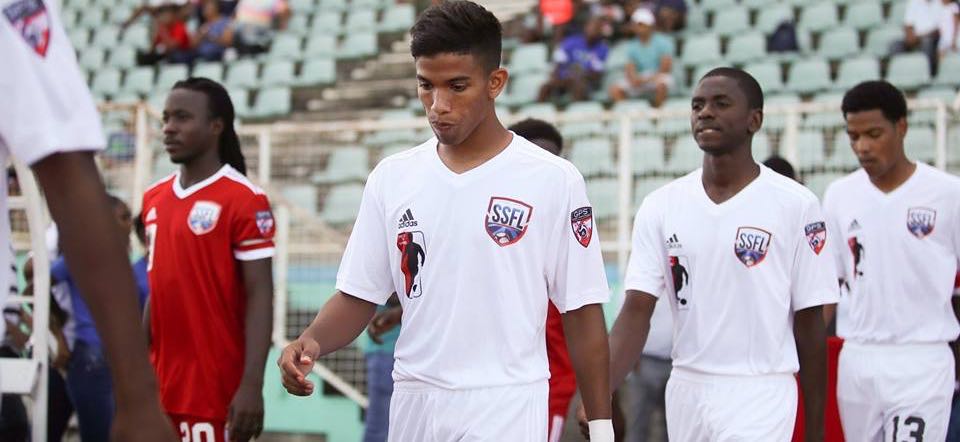Secondary Schools Football League (SSFL) coaches got to air some of their concerns about remuneration when the National Football Coaches of Trinidad and Tobago (NFCTT) continued its town hall-styled meetings on Saturday. Present at the meeting were SSFL Premier Division coaches.
The subject of adequate payment was raised by St Benedict’s College coach Randolph Boyce as it concerned coaches at government schools. He pointed out that payment to these coaches is often too meagre to allow the head coach to adequately compensate trainers/physiotherapists, support staff and afford proper equipment.
Also at the meeting former Trinidad and Tobago men’s senior team coach Hutson Charles fully endorsed the NFCTT’s plans, while Morvant Caledonia AIA technical director Jamaal Shabazz and AC Port of Spain head coach Walt Noriega also had their say in the talk with the Pro League coaches.
The NFCTT’s meetings will continue this Saturday when the Trinidad and Tobago Super League (TTSL) and Women’s League of Football (WoLF) coaches will get to contribute to the discussion and to be briefed on what the coaches association offers as well as its plans going forward.
RELATED NEWS
Saving a generation
By Garth Wattley (T&T Express).
In football, the problem may not be so much a drop in numbers as much as it may be a regression in development.
One can argue if any development in a real sense has been taking place in a sport in which standards on the pitch have been slipping noticeably for many a year. And I don’t have to remind you, reader of the utter mess the administration of the game has become.
But here is how one coach, Wayne Sheppard of Championship team Arima Secondary described the loss of this year for sides in the Secondary Schools Football League: “It’s a big loss because the SSFL covers players that are between the ages of ten to `19,20. Between ten to 14, that is the most critical period of development for any player in terms of technique. Between 14 and 16, players learn to apply technique to tactics. Beyond that is where you concentrate on winning titles and by playing, the players come to understand which tools to apply to what situation. With some of these players not being at clubs and club football being in the mess it is, it is leaving a big hole in the development of some of the players.”
Normalisation committee chairman Robert Hadad already has enough on his plate when it comes to getting the Football Association financially stable, but seeing to the proper development of young players must also be a matter of high importance to the new administration. It is a very difficult balancing act. But therein lies the challenge not only for the authorities in football but for administrators across the board in National Sporting Organisations.
Covid-19 has been like a huge landslide in Maracas or on the Lady Young Road that has smothered them. But in the “new normal” to come, hopefully sometime in 2021, they must adjust to the increased financial difficulties they are likely to face, with Government assistance expected to be reduced, but at the same time, continue to grow their sports. In short, they must find a way to save the current generation.


